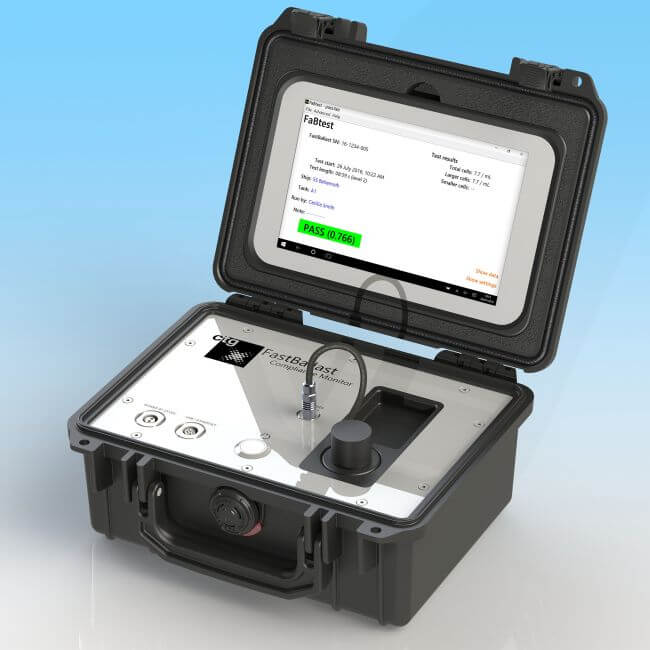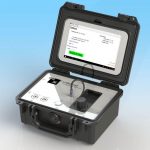Chelsea Technologies’ Fastballast Compliance Monitor Selected For Canadian Great Lakes Ballast Water Trial

Intelsat And APSATCOM Launch IntelsatOne Flex Maritime in Asia
October 9, 2018
Record-Breaking Cargo Project Loaded In Port Of Venice
October 12, 2018
Chelsea Technologies Group (CTG), a world leader in the design and manufacture of sensors for the maritime sector, has announced that its portable FastBallast compliance monitor has been selected by the Canadian government for trials in a four-month ballast water monitoring programme.
The study by Fisheries and Oceans Canada will conduct onboard testing of ballast water between July and October this year to ensure vessels are compliant and there is an accurate and reliable portable ballast water testing capability in place. The programme is being managed by the Great Lakes Laboratory for Fisheries and Aquatic Science, and will assess portable ballast water monitoring technology in providing an accurate, rapid assessment of ballast water to prove compliance with the Ballast Water Management Convention (BWMC).
CTG’s FastBallast is the only compliance monitor to use a statistical method to generate an estimate of cell density that is independent of an assumed level of fluorescence per cell, in order to achieve the most accurate reading. FastBallast conducts sampling based on the Poisson distribution theory which ensures a true analysis of the ballast water sample, and is also used by the Great Lakes Laboratory in its methodology. FastBallast provides a pass/fail response in under 10 minutes, and is the only technology capable of operating in a flow-through mode, while providing a high degree of accuracy with a representative report on discharge compliance.

Image Credits: Chelsea Technologies Group
FastBallast’s unique capability uses the single-turnover method, rather than the PAM multiple-turnover method, which provides a much lower detection limit (< 1 cell per mL) as the 20mL sample size avoids sampling problems at low cell densities. It is capable of determining the phytoplankton cell density of ballast water to IMO D2 & USCG Discharge Standards (10 to 50 µm range), with an equal degree of confidence as laboratory analysis.
FastBallast was identified by Saudi Aramco’s in-house marine biology experts as the most accurate solution in the market for the sampling and testing of ballast water, and is being used to conduct spot checks undertaken by third-party sampling companies. Since August 2017 Saudi Arabia has been conducting ballast water monitoring on vessels and conducting spot checks to ensure compliance. Sampling data was obtained from more than 500 vessels by Global Strategic Alliance (GSA) using CTG’s FastBallast monitoring system. A pass rate of 90% was reported for vessels using the D2 standard.
CTG’s FastBallast is setting the gold standard for effective enforcement of the BWMC, and will help dramatically reduce the impact of invasive species worldwide. As well as its extensive experience in Saudi Arabia CTG is working and in discussion with leading port authorities worldwide. Work is also underway on third-party protocol testing to help drive industry change in developing portable ballast water testing standards.
Dr Brian Phillips, Managing Director of Chelsea Technologies, commented:
‘Chelsea is working with regulators and port state authorities to develop an international standard for ballast water sampling and analysis, based on a proven methodology for representative sampling and analysis of ballast water. Allied to this, confidence in the accuracy of ballast water treatment systems is essential to ensure compliance with environmental regulations, as inaccurate testing and false readings could lead to delays with port state control and potentially significant fines, risking reputational damage, as well as the impact of non-compliant discharges on the environment.’
CTG is a leading global provider of highly advanced sensors and systems, and has over 50 years’ experience of developing technologies that perform a crucial role in providing accurate and reliable testing for compliance with environmental regulations.
Press Release
Source: Maritime Shipping News


